Hello Everybody, Today was Awesome. I got another chance to live Same as yours 😁 So keep the Kindness Roaring😊
Before we start,
Did you wonder if your contents are copied from the internet?
I'm browsing on google when I
What is "Copyright"?

Copyright is a type of intellectual property that gives its owner the exclusive right to make copies of a creative work, usually for a limited time. The creative work may be in a literary, artistic, educational, or musical form.
Which types of work are subject to copyright?
Copyright ownership gives the owner the exclusive right to use the work, with some exceptions. When a person creates an original work, fixed in a tangible medium, he or she automatically owns copyright to the work.
Many types of works are eligible for copyright protection, for example:
Audiovisual works, such as TV shows, movies, and online videos
Sound recordings and musical compositions
Written works, such as lectures, articles, books, and musical compositions
Visual works, such as paintings, posters, and advertisements
Video games and computer software
Dramatic works, such as plays and musicals
The Copyright Office has information online, and you can check with a lawyer if you want to know more.
Is it possible to use a copyright-protected work without infringing?
Yes, in some circumstances, it is possible to use a copyright-protected work without infringing the owner’s copyright. For more about this, you may wish to learn about fair use. It is important to note that your content can be removed in response to a claim of copyright infringement, even if you have...
Given credit to the copyright owner
Refrained from monetizing the infringing content
Charged for a copy of the content in question
Noticed similar content that appear elsewhere on the internet
Purchased the content including a hard or digital copy
Recorded the content yourself from TV, a movie theater, or the radio
Copied the content yourself from a textbook, a movie poster or photograph
Stated that “no copyright infringement is intended”
Some content creators choose to make their work available for reuse with certain requirements. For more about this, you may wish to learn about the Creative Commons license.
Can Google determine copyright ownership?
No. Google isn’t able to mediate rights ownership disputes. When we receive a complete and valid takedown notice, we remove the content as the law requires. When we receive a valid counter notification we forward it to the person who requested the removal. If there is still a dispute it’s up to the parties involved to resolve the issue in court.
What is the difference between copyright and trademark? What about patents?
Copyright is just one form of intellectual property. It is not the same as trademark, which protects brand names, mottos, logos, and other source identifiers from being used by others for certain purposes. It is also different from patent law, which protects inventions.
What is the difference between copyright and privacy?
Just because you appear in a video, image or audio recording does not mean you own the copyright to it. For example, if your friend took a picture of you, she would own the copyright to the image that she took. If your friend, or someone else, uploaded a video, image or recording of you without your permission, and you feel it violates your privacy or safety, you may wish to file a privacy complaint.
Copyright Infringement Notification Requirements
The easiest way to file a complaint is to use our legal troubleshooter.
Copyright notifications must include the following elements. Without this information, we will be unable to take action on your request:
1. Your contact information
You’ll need to provide information that will allow us to contact you regarding your complaint, such as an email address, physical address or telephone number.
2. A description of your work that you believe has been infringed
In your complaint, be sure to clearly and completely describe the copyrighted content you are seeking to protect. If multiple copyrighted works are covered in your complaint, the law allows a representative list of such works.
3. Each allegedly infringing URL
Your complaint must contain the specific URL of the content you believe infringes your rights, or we will be unable to locate it. General information about the location of the content is not adequate. Please include the URL(s) of the exact content at issue.
4. You must agree too and affirm both of the following statements:
“I have a good faith belief that use of the copyrighted materials described above as allegedly infringing is not authorized by the copyright owner, its agent, or the law.”
And
“The information in this notification is accurate and I swear, under penalty of perjury, that I am the copyright owner or am authorized to act on behalf of the owner of an exclusive right that is allegedly infringed.”
5. Your signature
Complete complaints require the physical or electronic signature of the copyright owner or a representative authorized to act on their behalf. To satisfy this requirement, you may type your full legal name to act as your signature at the bottom of your complaint.
Above is what Google definitions about Copyrights, now we go to government definitions.
What is copyright?
Copyright is a form of protection grounded in the U.S. Constitution and granted by law for original works of authorship fixed in a tangible medium of expression. Copyright covers both published and unpublished works.
What does copyright protect?
Copyright, a form of intellectual property law, protects original works of authorship including literary, dramatic, musical, and artistic works, such as poetry, novels, movies, songs, computer software, and architecture. Copyright does not protect facts, ideas, systems, or methods of operation, although it may protect the way these things are expressed. See Circular 1, Copyright Basics, section "What Works Are Protected."
How is a copyright different from a patent or a trademark?
Copyright protects original works of authorship, while a patent protects inventions or discoveries. Ideas and discoveries are not protected by the copyright law, although the way in which they are expressed may be. A trademark protects words, phrases, symbols, or designs identifying the source of the goods or services of one party and distinguishing them from those of others.
When is my work protected?
Your work is under copyright protection the moment it is created and fixed in a tangible form that it is perceptible either directly or with the aid of a machine or device.
Do I have to register with your office to be protected?
No. In general, registration is voluntary. Copyright exists from the moment the work is created. You will have to register, however, if you wish to bring a lawsuit for infringement of a U.S. work. See Circular 1, Copyright Basics, section “Copyright Registration.”
Why should I register my work if copyright protection is automatic?
Registration is recommended for a number of reasons. Many choose to register their works because they wish to have the facts of their copyright on the public record and have a certificate of registration. Registered works may be eligible for statutory damages and attorney's fees in successful litigation. Finally, if registration occurs within five years of publication, it is considered prima facie evidence in a court of law. See Circular 1, Copyright Basics, section “Copyright Registration” and Circular 38b, Highlights of Copyright Amendments Contained in the Uruguay Round Agreements Act (URAA), on non-U.S. works.
I’ve heard about a “poor man’s copyright.” What is it?
The practice of sending a copy of your own work to yourself is sometimes called a “poor man’s copyright.” There is no provision in the copyright law regarding any such type of protection, and it is not a substitute for registration.
Is my copyright good in other countries?
The United States has copyright relations with most countries throughout the world, and as a result of these agreements, we honor each other's citizens' copyrights. However, the United States does not have such copyright relationships with every country. For a listing of countries and the nature of their copyright relations with the United States, see Circular 38a, International Copyright Relations of the United States.
Do both google and government have the same definition of copyright?
Closing Thoughts
Copyrights and plagiarism are associated it needs self awareness and caution.
We must be aware of what we are getting on the internet and give full credits to them.
Sources:
Images comes from google itself.
https://support.google.com/legal/answer/3463239?hl=en
https://www.copyright.gov/help/faq/faq-general.html
FINAL.

What an informative article. ! May i ask you. What if someone copied an article on googgle and puting it on read cash how we can dwtermine it.